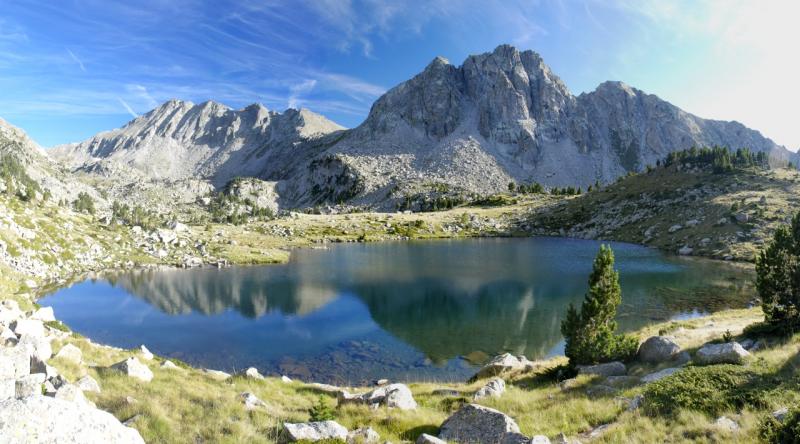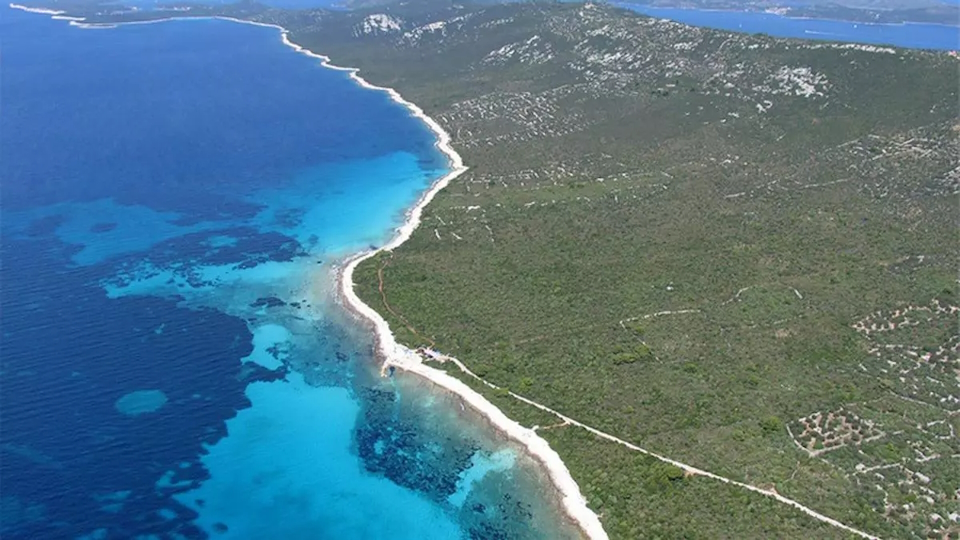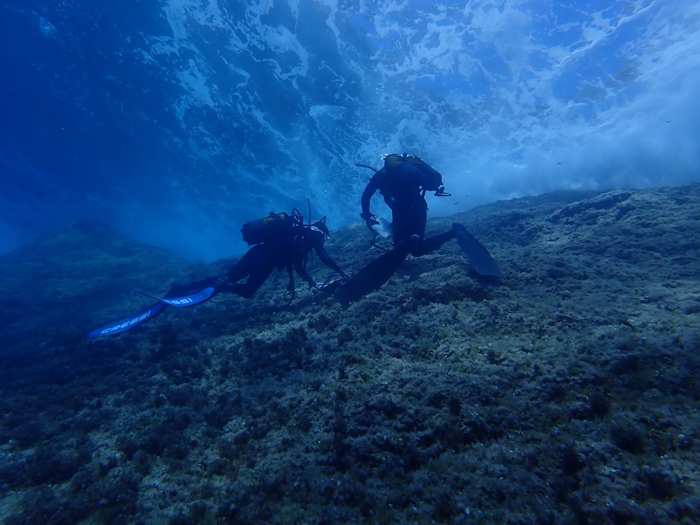A study led by Wuhan University, in collaboration with CEAB-CSIC, reveals that lakes—especially those at mid-to-high latitudes in the Northern Hemisphere—are important players in climate change. The shortening of the time their surfaces remain frozen alters the heat exchange between the water and the atmosphere, with effects that go beyond the local scale to influence the global climate. Moreover, this thermal contribution, which has so far been ignored in climate models, could increase by up to 7.5% by the end of the century, further intensifying planetary warming.
Lakes absorb energy and release it through heat exchange between water and air. The dynamics of this exchange depend on various factors, one of the most important being the ice cover that forms on lakes at mid and high latitudes. Ice acts as a kind of natural insulator: it reflects much of the solar radiation, maintains the water temperature, and limits energy exchange between the lake and the air.
However, according to the scientific study now published in Nature Communications, fewer lakes are freezing, and those that still do are frozen for shorter periods—something that is significantly contributing to global climate change.

Researchers have shown that lakes are releasing more and more heat into the air, especially in northern regions such as Canada, Siberia, and Scandinavia. The key factor is that, due to rising temperatures, ice covers them for a shorter time. Without the ice, they absorb more solar energy and warm more, and in turn, their heat escapes more easily into the air, warming it and further shortening the freezing period. It’s a kind of “vicious cycle” that increasingly warms these lakes and leads them to heat the air even more. This situation not only helps explain local climate changes occurring in lake regions—which are more severe than climate projections had indicated—but also has a notable influence on the global climate.
The study was conducted using mathematical modelling and supercomputers. Based on data gathered over decades by the scientific community, the researchers created representative lake models to obtain environmentally relevant variables. The work showed that the greatest increase in lake heat emissions comes from mid-to-high latitudes (nearly doubling the global average and far surpassing tropical lake emissions). It also allowed for projections: this effect is expected to intensify by an average of 7.5% by the end of this century.
Daniel Mercado-Bettín, a researcher at CEAB-CSIC who participated in the study, explains that “this research reveals that boreal lakes are contributing to accelerating global change more than previously known. Moreover, it highlights their fundamental role in climate change. There are 1.4 million lakes in the world, so the proportion of heat they emit into the atmosphere can be potentially high. However, this contribution has not been accounted for in temperature increase projections.”
The team emphasizes the importance of the Intergovernmental Panel on Climate Change (IPCC)—one of the world’s leading climate projection bodies—incorporating this information in its upcoming reports, thereby improving climate predictions.
Open science to project global change impacts
CEAB-CSIC’s participation in this study is part of the Inter-Sectoral Impact Model Intercomparison Project (ISIMIP) and is associated with the Global Lake Ecological Observatory Network (GLEON). Researcher Daniel Mercado-Bettín is taking part in this international open science project to make scientific predictions of global change impact patterns. Specifically, he coordinates the lake sector. ISIMIP brings together more than 100 climate modelling groups from around the world who work collaboratively and openly share their results so they can inform policy and management decisions. Simulations by these groups are carried out on high-performance clusters such as that of the Free University of Brussels, where most calculations for this project were performed.
Article reference: Yuanlin Qiu, Jie Chen, Deliang Chen, Wim Thiery, Daniel Mercado-Bettín, Lihua Xiong, Jun Xia & R. Iestyn Woolway. Enhanced heating effect of lakes under global warming. Nat Commun 16, 3954 (2025). https://doi.org/10.1038/s41467-025-59291-3










